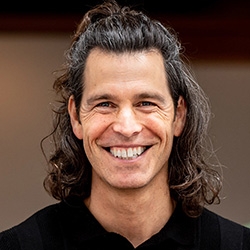

Search Results: questions
-
Ask the Trainer: Feeling frustrated & angry over simple things? Find the root of your hidden needs.
-
Learn to tell needs from strategies in parenting with two simple questions for clarity.
-
"Privilege" has many meanings, which can bring confusion. Here are questions essential to navigating challenges in NVC community about "privilege": How to call attention to times when language is used to divide and not connect? Where are people coming from when they say "privilege"? How to focus on using whatever language supports the depth of connection we seek with the heart of the people in front of us? Read on for more.
-
Trainer Tip: "Sometimes we are dissatisfied in our primary relationship, yet the thought of making a change is scary, so we stay in it. Sometimes we think we're afraid to learn the truth, so we don't ask direct questions."
-
Exploring how to connect with your reasons for offering empathy when someone shares pain.
-
Ask the Trainer: Can NVC transform group conflict? Trainer shares stories and answers the question.
-
Ask the Trainer: "In trainings I say our jackals are thoughts and now I've come to wonder if all thoughts are jackals...?"
-
Discover a simpler way to ask “Would you tell me what you heard me say?” in NVC.
-
Inbal answers a parent's question about praise and offers a perspective on how praise translates into the NVC framework.
-
The question “Is X an evaluation?” (where “X" represents whatever word is under discussion) has taken up some controversy in the NVC network. Often, context changes the meaning and assessment of words (eg. use of the term "domination" as in "You’re trying to dominate me!” vs. “domination societies”). Read on for several questions that can support understanding whether a term is evaluative, and reflect on the results it produces.
-
-
-
Ask the Trainer: Share a list of request types, examples, and a strategy for formulating them.
-
Listen to this newly remastered audio with seasoned Life Coach and CNVC Certified Trainers Martha Lasley and Dian Killian, to explore how you can "be the change" in your life, to live fully in integrity with your values in your work, community, faith and social action groups.
-
If you're interested in learning specifically how and what you can do to live compassionately – with plenty of hands-on practice time – this course is for you. Observe actual demonstrations of Robert guiding participants through the transformational territory of healing and integration.
-
- Learn how every decision we make perpetuates the status quo or brings us closer to the vision of a world that works for all
- Find out about our big brain capacity to integrate needs, impacts, and resources to make decisions that work for everyone
- Understand why power differences interfere with collaborative decisions and what can be done about it
- Discover tools that support collaboration in larger groups and organizations— even across power differences!
-
Yoram Mosenzon suggests that when we make positive language requests, we tell people what we want. We give them an image of what would make life more wonderful. What we usually do is tell people what we do not want. This tends to create resistance.
-
Ask the Trainer: Guidance for NVC groups on when and how to make requests, especially negative ones.
-
- Learn your body’s “language” and how to listen deeply to it
- Expand your NVC toolbox with emergency self-empathy tips
- Explore drawing on your senses to get past what is blocking you
- Discover and practice that “missing step” in the NVC process
-
Judgment is an attempt to protect from hopelessness or insecurity, at high cost. Instead, check in with fear, grief, or hurt. Then wonder what needs are at stake for everyone. This makes space for grief instead of anger, for negotiation rather than control, and for "calling in" rather than excluding. Wonder: “For whom would this be life-serving or not?”, “What strategies would care for all needs?” or, “What can I contribute now?”

Quick Links
Subscription Preferences
Stay In Touch!
Looking for ways to keep up with NVC Academy news, get special offers, free resources, or words of inspiration? Here are five ways to stay engaged:
















